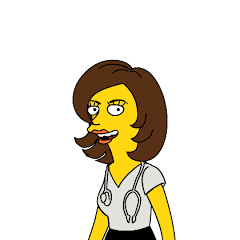You know, often I think this same logic can be applied to problems in life. Something comes up, a symptom arises to cause someone to question something they didn't know was wrong. So we seek to gather more information. We ask lots of questions, look for more evidence, run some tests, spend exorbitant amounts of time and energy trying to figure things out. It is emotionally and physically draining. In the end, we just want the answer. But God doesn't always paint the answer in the sky. Sometimes it takes faith. And that can be kind of scary. Stepping out on that ledge and trusting that God will not let you fall. And to make matters even tricker, there's an Enemy who throws obstacles in our way. This happens in medicine, too. We call it "red herrings". Sometimes we get information that makes us think it might be one diagnosis. And we may even lock on to that diagnosis. But then we realize we were totally led astray by the red herring. That's what Satan does in our lives. He throws red herrings our way. He makes us think perhaps we're not doing what God wants. He is the master manipulator, the greatest liar ever. And he hates to see God's people glorifying Him. So he will do whatever it takes to fool us. So how do we find the truth in all of this? When we've collected all the evidence, listened to everyone's opinions, considered whether some "facts" are actually red herrings... how do we come to a conclusion? The only answer I can think of is to pray. Pray, pray, and pray some more. Pray that God will reveal the truth, and He will not lead us astray. And lean on the one truth we are sure of - Christ Jesus.
Saturday, March 13, 2010
The agony of the unknown
Many times in medicine, a diagnosis may not be clear from the beginning. Some things are obvious. A kid who has wheezing and hyperinflated lung fields on X-ray, probably an asthma attack. Tympanic membranes that are red and bulging with pus behind the ear drum, otitis media. But then there are the mysteries. The ones where you get a few clues here and there. Or maybe you had no idea that something was brewing all along. You thought you had the whole picture, but it turns out there were things you missed. Were there clues all along? Should you have suspected the diagnosis? So then you begin to gather evidence. You ask the parents questions about the child. This is called taking a history, and it's something you learn early in medical school. We learned a technique called OPQRST: Onset, Precipitating/Provoking factors, Quality, Radiation, Severity, and Timing. You try to fully describe the symptom and get a clear history from the person who has the complaints (or their parents). You get a family history, too. You ask questions about the family members - have THEY ever had these symptoms? Then you do a thorough physical exam, trying to focus on the things you think might be going wrong. Is it stemming from the brain? So you do a thorough neurologic exam - cranial nerves, gross motor, cerebellar function, reflexes, gait. Is it the heart? You listen for a murmur, feel the precordium, check pulses, capillary refill. You do an abdominal exam, looking for enlargement of the liver or spleen. And then you run tests. Blood tests, urine tests, maybe even check the cerebrospinal fluid. You put the patient through all kinds of painful tests, some of them including invasive procedures like liver biopsies and bone marrow biopsies. You order X-rays to look for evidence of what's causing the problem. Plain films first, then CT scans, maybe even MRI's or nuclear medicine studies. And sometimes, even after ALL of this... you STILL don't know what's going on. What is the problem and how are we going to fix it? That's the agony of the unknown. It's horrible for the person who's suffering AND for the person who's looking for answers. How do we find the answer? Will God reveal it?
Subscribe to:
Post Comments (Atom)

1 comment:
That, my dear doctor, is incredibly well thought, well written, and quite right! Amen! Looking forward to the book! :o)
Post a Comment